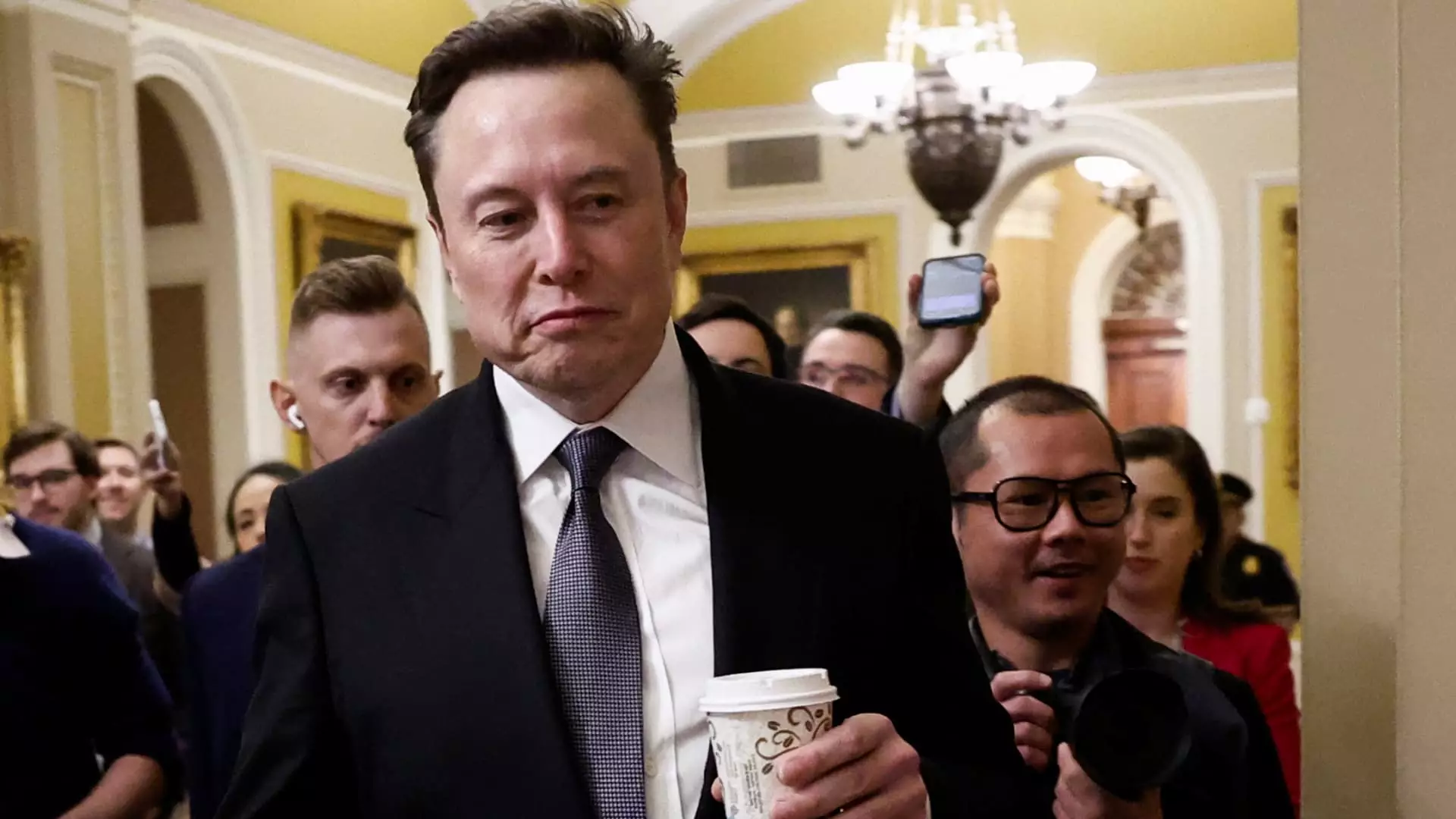The intricate relationship between technology, politics, and international relations has never been so noticeable as in recent debates surrounding U.S. investments in China. House Democrats Jim McGovern and Rosa DeLauro have pointed fingers at their Republican counterparts, accusing them of yielding to Elon Musk’s influence. The situation escalated when a bipartisan funding bill—intended to regulate American investments in China—was abruptly derailed. This scenario raises pressing questions about the intersection of business interests, legislative power, and national security.
Despite successful passage of a temporary funding measure, concerns persist about the motivations behind rejecting the initial bipartisan bill. McGovern has noted that the rejected provisions could have preserved vital technological advancements in the U.S., especially in domains like artificial intelligence (AI) and quantum computing. This suggests that legislative decisions may have consequences beyond immediate budget concerns, impacting America’s competitive edge in globally significant industries.
Elon Musk’s business ventures, particularly with Tesla, offer a revealing glimpse into the complexities of foreign investment and global commerce. Unlike other foreign automakers, Tesla operates a fully owned factory in China and even expanded its operations with a local battery plant. This strategic positioning in a rapidly developing market is critical for the company, but it poses significant questions about national loyalty and economic practices. McGovern’s criticism highlights the inherent tension in Musk’s operations—his financial success seems to depend on maintaining favorable relations with the Chinese government, often at odds with broader U.S. interests.
The narrative of Musk as a business mogul closely intertwined with the political landscape grows more intricate when one considers the potential implications for U.S. national security. The concern is that Musk is not simply engaging in business; he is building a technological ecosystem in China that might prove detrimental to American interests. With reports of Musk’s aspirations to build an AI data center in China, fears arise regarding intellectual property loss, erosion of technological superiority, and possible espionage.
DeLauro’s correspondence with Congress emphasizes the necessity for scrutiny and oversight with respect to Musk’s dealings. When referring to Musk as “President Musk,” she underlines the uncomfortably cozy relationship Musk has cultivated with Chinese leadership. This relationship is particularly alarming when juxtaposed with ongoing U.S.-China tensions, especially around Taiwan—a region that remains a contentious focal point in international relations.
The interwoven nature of Musk’s business dealings and his political affiliations complicates this situation. Following the upheaval caused by the prior funding proposal, Trump’s evident influence on Republican legislators indicates a shift in priorities that align closely with Musk’s interests. Musk’s past support for Trump—including substantial contributions during the 2024 political cycle—paints a portrait of a businessman leveraging political connections for corporate gain.
Trump’s aim to mitigate the debt ceiling issue further complicates the narrative. The subsequent rejection of bipartisan attempts to regulate investments in China reflects not just the influence of a billionaire businessman but also the extent to which individual personas can shape legislative agendas. The political landscape is increasingly fractured, with Musk seemingly at the center of these shifts, applying pressure that influences decisions affecting the entire nation.
The reality is that Musk’s responses—such as branding DeLauro as an “awful creature”—illustrate a pattern of deflection and aggression that often accompanies high-stakes political discourse. This behavior is indicative of broader trends where financial leadership exerts significant influence on policy, often prioritizing personal agendas over the common good.
The fallout from Musk’s powerful intersection with U.S. politics reveals a pressing ethical dilemma. It challenges the traditional notions of corporate responsibility, highlighting the necessity for accountability when business interests collide with national security. As Congress grapples with these complexities, the way forward remains uncertain, but the stakes have never been higher. The ramifications of these interconnected relationships will likely reverberate far beyond the confines of Capitol Hill, reshaping how technology and governance interact in an increasingly globalized world.

